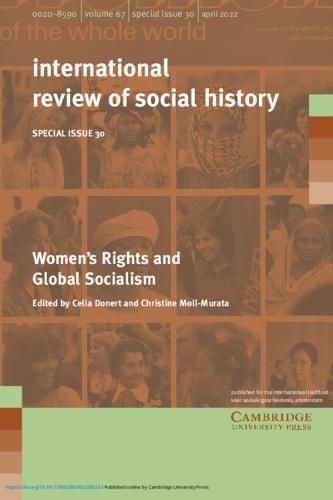Readings Newsletter
Become a Readings Member to make your shopping experience even easier.
Sign in or sign up for free!
You’re not far away from qualifying for FREE standard shipping within Australia
You’ve qualified for FREE standard shipping within Australia
The cart is loading…






Women’s emancipation was a central but contested pillar of socialist and communist internationalism during the twentieth century. The collapse of state socialism has led to renewed interest in the history and legacies of women’s movements across the former socialist world during the era of decolonisation, and their significance for global feminisms in the present day. Responding to these debates, this collection of essays explores the history of transnational socialist feminisms during the global Cold War from the perspective of mid-ranking activists, officials and functionaries in international communist and left-revolutionary movements in Eastern Europe and the postcolonial world. Drawing on new sources, including private correspondence, interviews, memoirs and institutional archives, the essays ask how these activists defined women’s rights from the era of the Popular Fronts in the 1930s until the United Nations Decade of Women (1976-1985).
$9.00 standard shipping within Australia
FREE standard shipping within Australia for orders over $100.00
Express & International shipping calculated at checkout
Women’s emancipation was a central but contested pillar of socialist and communist internationalism during the twentieth century. The collapse of state socialism has led to renewed interest in the history and legacies of women’s movements across the former socialist world during the era of decolonisation, and their significance for global feminisms in the present day. Responding to these debates, this collection of essays explores the history of transnational socialist feminisms during the global Cold War from the perspective of mid-ranking activists, officials and functionaries in international communist and left-revolutionary movements in Eastern Europe and the postcolonial world. Drawing on new sources, including private correspondence, interviews, memoirs and institutional archives, the essays ask how these activists defined women’s rights from the era of the Popular Fronts in the 1930s until the United Nations Decade of Women (1976-1985).